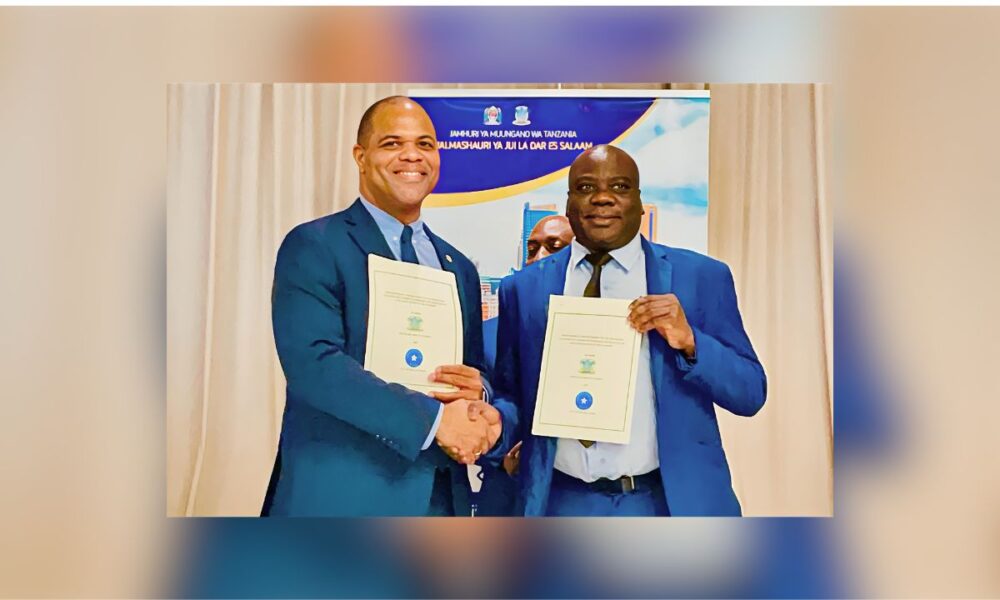Dallas officially welcomed Dar es Salaam, United Republic of Tanzania, as its newest Sister City on Tuesday, July 22, marking a milestone in U.S.-Africa relations.
Mayor Eric L. Johnson signed the agreement alongside Dar es Salaam Lord Mayor Omary S. Kumbilamoto during an eight-day visit to Tanzania, solidifying a partnership rooted in economic and cultural exchange.
The pact, building on a 2022 Memorandum of Understanding, outlines plans for trade and economic development, small business exchanges, student programs, and tourism collaborations. It fulfills three prior goals: establishing a trade office in Dallas for East African commerce, hosting a Dallas delegation in Tanzania, and formalizing this agreement.
The Tanzanian American Chamber of Commerce, headquartered in Dallas’s International District since last year, enhances the city’s role in this growing trade, which hit $770 million with Tanzania in 2024.
Johnson’s trip included stops in Zanzibar, Dar es Salaam, and Arusha, where he met with Tanzanian officials and business leaders. Arriving in Dar es Salaam on July 20, he was greeted by U.S. Embassy representatives and Ambassador Elsie Kanza. Over the following days, he engaged with figures like Regional Commissioner Albert Chalamila, who invited Dallas businesses to invest, citing Dar es Salaam’s strategic location and workforce.
“Cultural and educational exchanges are key to a thriving Sister City relationship, in addition to economic trade,” Johnson said during a meeting with Kumbilamoto.
The formal signing ceremony followed a roundtable discussion with Tanzanian Minister Palamagamba John Kabudi and other participants, focusing on trade, investment, and tourism. Johnson highlighted Dallas’s economic strength and its emerging role in U.S.-Tanzania commerce.
Ambassador Mahmoud Thabit Kombo later congratulated Johnson, noting that the partnership’s foundation was in “genuine connections and mutual respect.”
Johnson also visited cultural sites, such as the African Liberation Museum and the Dar Centre for Architectural Heritage, to emphasize the cultural ties. His trip concluded with a factory tour at Tanzania Tooku Garments Company, which employs over 4,000 workers in denim production, and a networking dinner where he invited Tanzanian leaders to explore potential Dallas investments.
“Successful business partnerships must be built on trust and strong personal relationships,” he said, underscoring the visit’s impact.
The agreement signals a new era of collaboration, with Dallas positioning itself as a hub for Tanzanian trade in the U.S.


